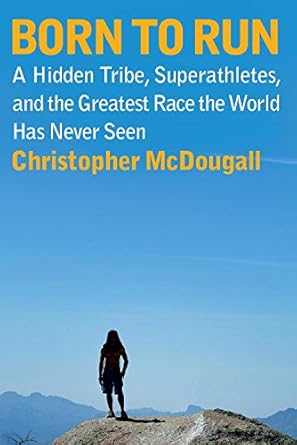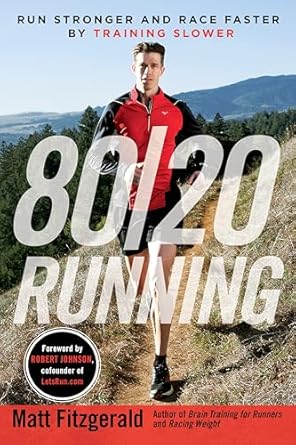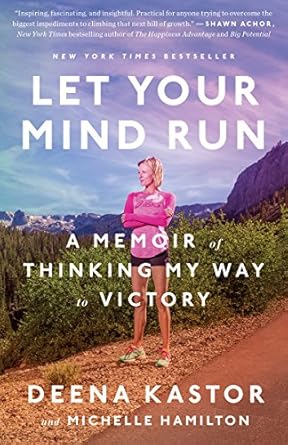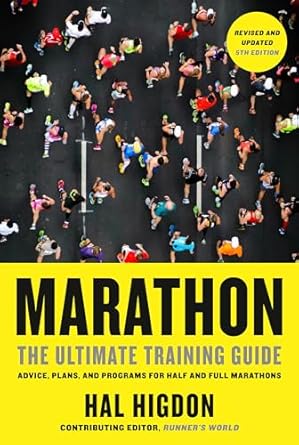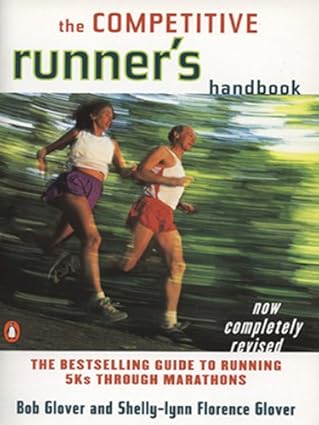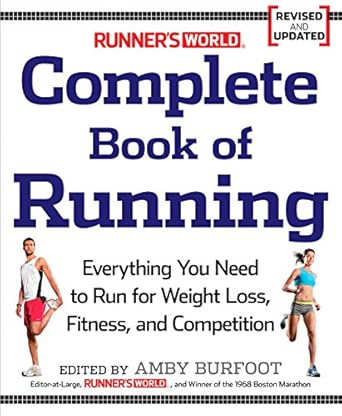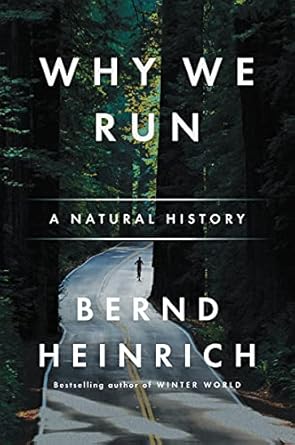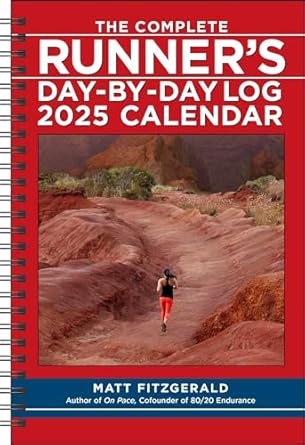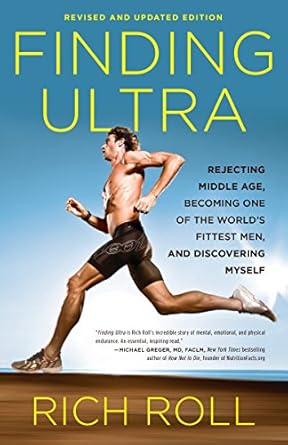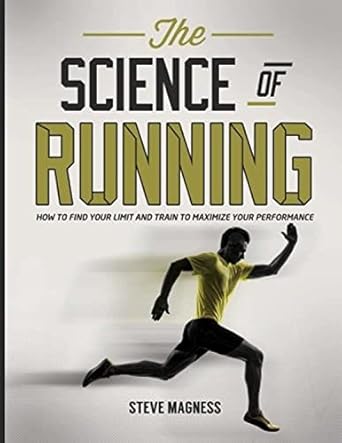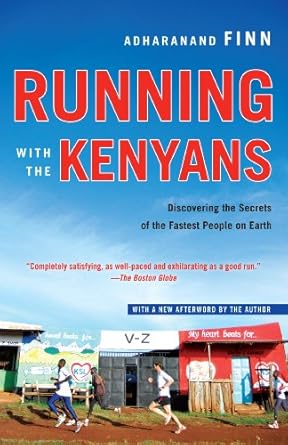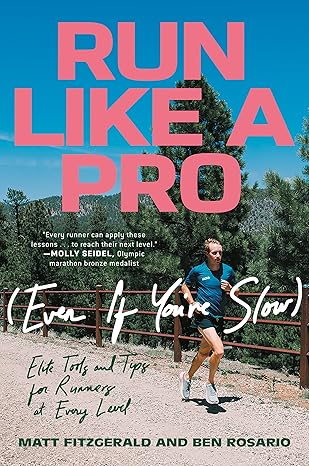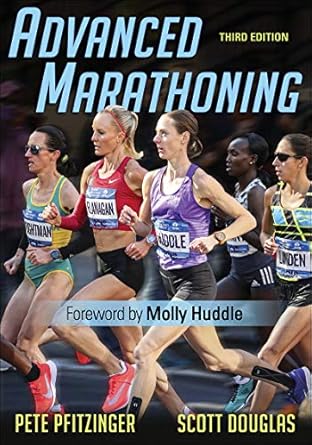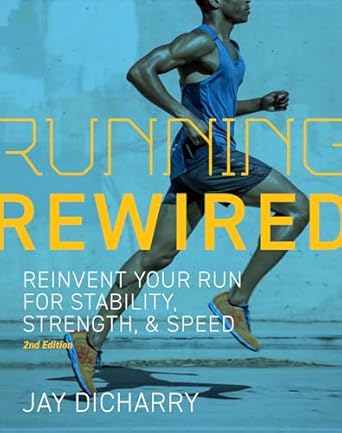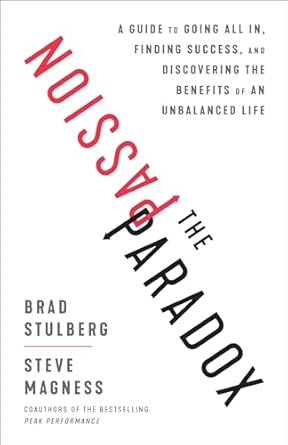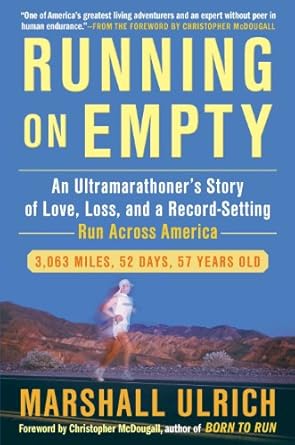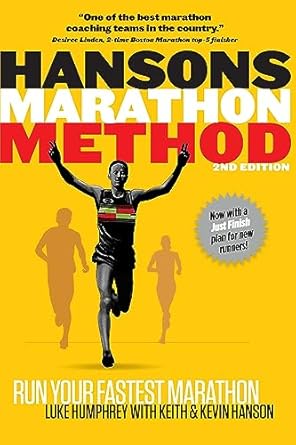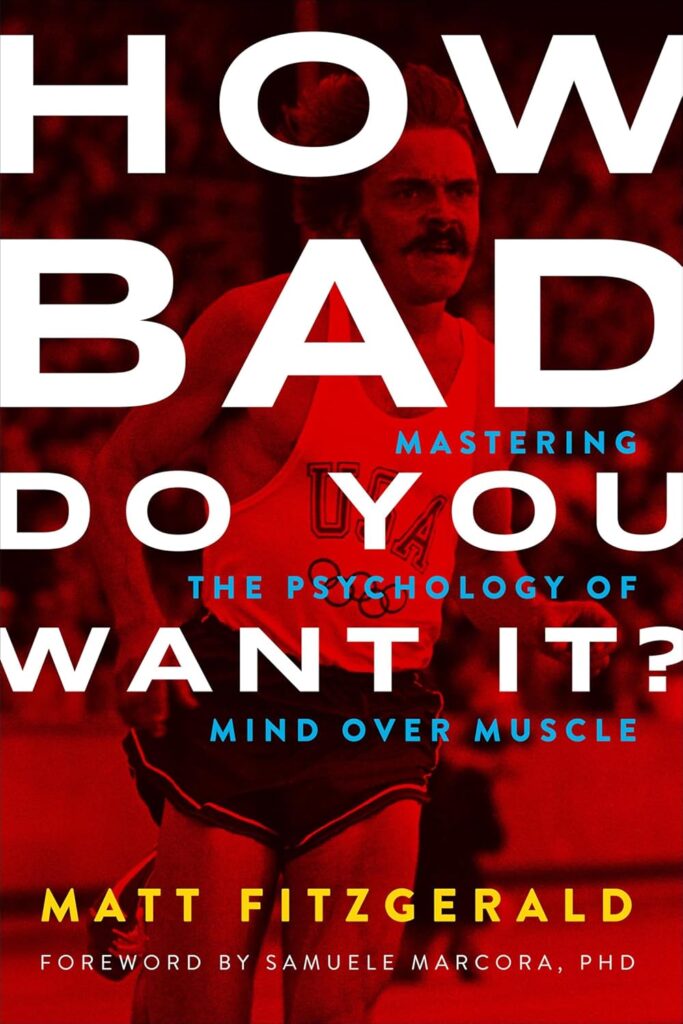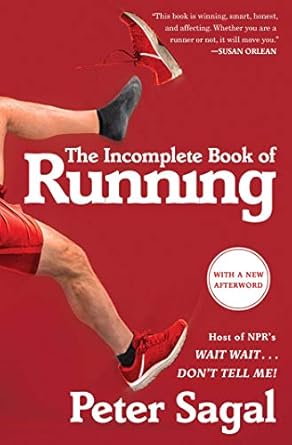Summary: In this article, I have handpicked 20 of the best books for runners, carefully selected to help you train better, race smarter, and stay motivated mile after mile. Here are my top 3:
- Born to Run by Christopher McDougall
- 80/20 Running: Run Stronger and Race Faster by Training Slower by Matt Fitzgerald
- Let Your Mind Run: A Memoir of Thinking My Way to Victory by Deena Kastor
Running is more than just movement—it’s science, strategy, and mindset. The right book can help you improve technique, prevent injuries, boost endurance, and stay motivated. From expert training guides like 80/20 Running to inspiring memoirs like Let Your Mind Run, these books offer insights to take your running to the next level.
TOP 20: Best Books for Runners
- Born to Run by Christopher McDougall
- 80/20 Running: Run Stronger and Race Faster by Training Slower by Matt Fitzgerald
- Let Your Mind Run: A Memoir of Thinking My Way to Victory by Deena Kastor
- Marathon: The Ultimate Training Guide by Hal Higdon
- The Runner's Handbook by Bob Glover
- Runner's World Complete Book of Running by Amby Burfoot (Editor)
- Why We Run: A Natural History by Bernd Heinrich
- The Complete Runner's Day-by-Day Log 2025 Planner Calendar by Matt Fitzgerald
- Run Fast. Cook Fast. Eat Slow. by Shalane Flanagan & Elyse Kopecky
- Finding Ultra: Rejecting Middle Age, Becoming One of the World's Fittest Men, and Discovering Myself by Rich Roll
- The Science of Running by Steve Magness
- Running with the Kenyans by Adharanand Finn
- Run Like a Pro (Even If You’re Slow) by Matt Fitzgerald & Ben Rosario
- Advanced Marathoning by Pete Pfitzinger & Scott Douglas
- Running Rewired: Reinvent Your Run for Stability, Strength, and Speed by Jay Dicharry
- The Passion Paradox: A Guide to Going All In, Finding Success, and Discovering the Benefits of an Unbalanced Life by Brad Stulberg & Steve Magness
- Running on Empty by Marshall Ulrich
- Hansons Marathon Method by Luke Humphrey
- How Bad Do You Want It? Mastering the Psychology of Mind over Muscle by Matt Fitzgerald
- The Incomplete Book of Running by Peter Sagal
1. Born to Run: A Hidden Tribe, Superathletes, and the Greatest Race the World Has Never Seen
- Author: Christopher McDougall
- About: This book explores the running prowess of the Tarahumara tribe in Mexico's Copper Canyons and delves into the history and science of running.
- Style of Writing: Narrative non-fiction with investigative journalism.
- Length: Approximately 352 pages.
- Year Written: 2009.
- Emotional Impact: Inspiring and thought-provoking; leaves a lasting impression on the philosophy of running.
- Difficulty Level: Moderate; accessible to general readers.
- Why Read It: Offers a unique perspective on the origins of running and challenges modern perceptions of the sport.
2. 80/20 Running: Run Stronger and Race Faster by Training Slower
- Author: Matt Fitzgerald
- About: Advocates for a training approach where 80% of runs are at low intensity and 20% at high intensity to improve performance.
- Style of Writing: Instructional with scientific explanations.
- Length: Approximately 272 pages.
- Year Written: 2014.
- Emotional Impact: Informative and enlightening; encourages a reevaluation of training methods.
- Difficulty Level: Moderate; suitable for runners with some training experience.
- Why Read It: Provides a research-backed methodology to enhance running efficiency and prevent burnout.
3. Let Your Mind Run: A Memoir of Thinking My Way to Victory
- Author: Deena Kastor
- About: An Olympic medalist shares her journey of mental transformation and its impact on her running career.
- Style of Writing: Personal memoir with motivational insights.
- Length: Approximately 288 pages.
- Year Written: 2018.
- Emotional Impact: Deeply inspiring; highlights the power of a positive mindset.
- Difficulty Level: Easy; engaging for all readers.
- Why Read It: Demonstrates the significant role of mental strength in achieving athletic success.
4. Marathon: The Ultimate Training Guide
- Author: Hal Higdon
- About: A comprehensive guide offering training plans, nutrition advice, and injury prevention tips for marathon runners.
- Style of Writing: Practical and straightforward.
- Length: Approximately 304 pages.
- Year Written: 1993 (with subsequent editions).
- Emotional Impact: Encouraging; instills confidence in marathon preparation.
- Difficulty Level: Easy to moderate; suitable for beginners and intermediate runners.
- Why Read It: Provides tried-and-tested training programs from a renowned running coach.
5. The Runner's Handbook
- Author: Bob Glover
- About: A guide covering various aspects of running, including training, nutrition, and motivation, tailored for beginners and intermediate runners.
- Style of Writing: Informative and accessible.
- Length: Approximately 688 pages.
- Year Written: 1978 (with subsequent editions).
- Emotional Impact: Supportive; serves as a reliable companion for runners.
- Difficulty Level: Easy; user-friendly for newcomers.
- Why Read It: Offers a solid foundation for those new to running, with practical advice.
6. Runner's World Complete Book of Running
- Editor: Amby Burfoot
- About: A comprehensive resource covering topics from training plans to nutrition, compiled by experts from Runner's World magazine.
- Style of Writing: Diverse contributions; informative.
- Length: Approximately 320 pages.
- Year Written: 1997.
- Emotional Impact: Informative; serves as a go-to reference.
- Difficulty Level: Easy to moderate; caters to a broad audience.
- Why Read It: Consolidates expert advice into a single, accessible volume.
7. Why We Run: A Natural History
- Author: Bernd Heinrich
- About: Combines biology and memoir to explore the evolutionary basis of running and the author's personal experiences.
- Style of Writing: Reflective and scientific.
- Length: Approximately 292 pages.
- Year Written: 2001.
- Emotional Impact: Thought-provoking; offers a deep appreciation for the natural aspects of running.
- Difficulty Level: Moderate; appeals to those interested in science and personal narratives.
- Why Read It: Great way to learn more about the history of the sport.
8. The Complete Runner's Day-by-Day Log 2025 Planner Calendar
- Author: Matt Fitzgerald
- About: A planner designed for runners to log daily workouts, track progress, and stay motivated throughout the year.
- Style of Writing: Interactive and practical; primarily a logbook with motivational quotes and tips.
- Length: Approximately 272 pages.
- Year Written: 2024 (for the 2025 calendar year).
- Emotional Impact: Encouraging; helps runners maintain consistency and reflect on their journey.
- Difficulty Level: Easy; suitable for runners of all levels.
- Why Read It: Provides a structured way to monitor training, set goals, and stay accountable.
9. Run Fast. Cook Fast. Eat Slow.: Quick-Fix Recipes for Hangry Athletes
- Authors: Shalane Flanagan & Elyse Kopecky
- About: A cookbook offering nutritious and easy-to-prepare recipes tailored for athletes, focusing on whole foods to fuel performance.
- Style of Writing: Informative and accessible; combines personal anecdotes with practical cooking advice.
- Length: Approximately 256 pages.
- Year Written: 2018.
- Emotional Impact: Motivating; inspires athletes to prioritize nutrition without compromising on taste or time.
- Difficulty Level: Easy; recipes are straightforward and suitable for all cooking skill levels.
- Why Read It: Offers practical meal solutions to support training and recovery, emphasizing the importance of nutrition in athletic performance.
10. Finding Ultra: Rejecting Middle Age, Becoming One of the World's Fittest Men, and Discovering Myself
- Author: Rich Roll
- About: A memoir detailing the author's transformation from an unfit middle-aged man to an elite ultra-endurance athlete through plant-based nutrition and rigorous training.
- Style of Writing: Personal and introspective; combines storytelling with motivational insights.
- Length: Approximately 400 pages.
- Year Written: 2012.
- Emotional Impact: Inspiring and uplifting; showcases the power of lifestyle changes and determination.
- Difficulty Level: Easy to moderate; engaging for a broad audience.
- Why Read It: Demonstrates the potential for personal transformation at any age, highlighting the benefits of plant-based nutrition and endurance training.
11. The Science of Running: How to Find Your Limit and Train to Maximize Your Performance
- Author: Steve Magness
- About: An in-depth exploration of the science behind running performance, covering topics like physiology, biomechanics, and training methodologies.
- Style of Writing: Technical and analytical; suitable for readers interested in the scientific aspects of running.
- Length: Approximately 312 pages.
- Year Written: 2014.
- Emotional Impact: Informative; provides a deeper understanding of the factors influencing running performance.
- Difficulty Level: Moderate to high; best suited for readers with a keen interest in sports science.
- Why Read It: Equips runners with knowledge to optimize their training based on scientific principles.
12. Running with the Kenyans: Passion, Adventure, and the Secrets of the Fastest People on Earth
- Author: Adharanand Finn
- About: A journalist's journey to Kenya to uncover the secrets behind the country's dominance in long-distance running.
- Style of Writing: Narrative non-fiction; blends travelogue with investigative journalism.
- Length: Approximately 304 pages.
- Year Written: 2012.
- Emotional Impact: Engaging and enlightening; offers cultural insights and personal reflections.
- Difficulty Level: Easy to moderate; accessible to a wide audience.
- Why Read It: Provides a unique perspective on the factors contributing to Kenyan runners' success, including culture, training, and environment.
13. Run Like a Pro (Even If You’re Slow): Elite Tools and Tips for Runners at Every Level
- Authors: Matt Fitzgerald & Ben Rosario
- About: Offers practical advice and training strategies from elite coaches to help runners of all levels improve their performance.
- Style of Writing: Instructional and motivational; combines expert guidance with actionable tips.
- Length: Approximately 272 pages.
- Year Written: 2022.
- Emotional Impact: Encouraging; empowers runners to adopt professional training techniques.
- Difficulty Level: Easy to moderate; suitable for runners seeking structured improvement.
- Why Read It: Bridges the gap between amateur and elite training, making advanced strategies accessible to all.
14. Advanced Marathoning
- Authors: Pete Pfitzinger & Scott Douglas
- About: This book provides comprehensive training schedules and strategies for serious runners aiming to improve their marathon performance. It covers topics such as nutrition, hydration, recovery techniques, and supplementary training.
- Style of Writing: Informative and structured; focuses on practical advice backed by scientific research.
- Length: Approximately 296 pages.
- Year Written: 2019 (Third Edition).
- Emotional Impact: Motivating; encourages runners to push their limits and achieve personal bests.
- Difficulty Level: Moderate to advanced; best suited for experienced runners seeking to enhance their training regimen.
- Why Read It: Offers detailed training plans and expert insights to help marathoners train smarter and achieve peak performance.
15. Running Rewired: Reinvent Your Run for Stability, Strength, and Speed
- Author: Jay Dicharry
- About: This book presents a program designed to help runners overcome injuries, improve mobility, and enhance performance through targeted exercises and movement patterns.
- Style of Writing: Practical and engaging; combines scientific explanations with actionable workouts.
- Length: Approximately 250 pages.
- Year Written: 2017.
- Emotional Impact: Empowering; provides runners with tools to take control of their physical health and performance.
- Difficulty Level: Moderate; suitable for runners of all levels committed to improving their biomechanics.
- Why Read It: Offers innovative strategies to enhance running efficiency and prevent injuries through rewiring movement patterns.
16. The Passion Paradox: A Guide to Going All In, Finding Success, and Discovering the Benefits of an Unbalanced Life
- Authors: Brad Stulberg & Steve Magness
- About: This book explores the concept of passion, examining its dual nature and offering guidance on how to harness it effectively for personal and professional growth.
- Style of Writing: Analytical and motivational; combines scientific research with practical advice.
- Length: Approximately 192 pages.
- Year Written: 2019.
- Emotional Impact: Thought-provoking; encourages readers to reflect on their pursuits and the role of passion in their lives.
- Difficulty Level: Moderate; suitable for readers interested in psychology and self-improvement.
- Why Read It: Provides insights into managing passion to avoid burnout and achieve sustainable success.
17. Running on Empty
- Author: Marshall Ulrich
- About: An ultramarathoner shares his experiences of running across America, delving into the physical and emotional challenges faced during extreme endurance events.
- Style of Writing: Personal narrative; introspective and descriptive.
- Length: Approximately 320 pages.
- Year Written: 2011.
- Emotional Impact: Inspiring and raw; offers a deep look into the mindset required for ultrarunning.
- Difficulty Level: Moderate; appeals to readers interested in endurance sports and personal challenges.
- Why Read It: Provides a firsthand account of pushing human limits and the lessons learned along the way.
18. Hansons Marathon Method
- Authors: Luke Humphrey with Keith & Kevin Hanson
- About: Presents a marathon training approach that emphasizes balanced weekly mileage and active recovery, challenging traditional long-run methodologies.
- Style of Writing: Instructional and detailed; includes training plans and scientific explanations.
- Length: Approximately 256 pages.
- Year Written: 2012.
- Emotional Impact: Encouraging; offers a fresh perspective on marathon training.
- Difficulty Level: Moderate; best suited for runners with some experience seeking to improve their marathon performance.
- Why Read It: Introduces an alternative training philosophy that has proven successful for many runners.
19. How Bad Do You Want It? Mastering the Psychology of Mind over Muscle
- Author: Matt Fitzgerald
- About: Explores the psychological aspects of endurance sports, illustrating how mental strength can significantly impact performance.
- Style of Writing: Engaging and research-based; combines storytelling with scientific insights.
- Length: Approximately 288 pages.
- Year Written: 2015.
- Emotional Impact: Motivational; empowers athletes to develop mental resilience.
- Difficulty Level: Moderate; suitable for athletes and those interested in sports psychology.
- Why Read It: Highlights the crucial role of mindset in achieving athletic success.
20. The Incomplete Book of Running
- Author: Peter Sagal
- About: A memoir by the host of NPR's “Wait Wait… Don't Tell Me!” that reflects on life, running, and the intersections between the two.
- Style of Writing: Humorous and reflective; blends personal anecdotes with broader observations.
- Length: Approximately 208 pages.
- Year Written: 2018.
- Emotional Impact: Entertaining and relatable; offers a lighthearted yet meaningful look at running.
- Difficulty Level: Easy; accessible to a wide audience, including non-runners.
- Why Read It: Provides an enjoyable perspective on how running can influence and reflect life's journey.
Conclusion
No matter where you are in your running journey, I truly believe the right book can change the way you train, think, and feel about running. Born to Run opened my eyes to the incredible endurance potential we all have, 80/20 Running completely changed the way I approach training, and Let Your Mind Run showed me just how powerful mindset can be in performance. These three books stand out as the best of the best—offering inspiration, strategy, and motivation to help you run farther, faster, and with more joy. If I had to recommend just a few books to any runner, these would be at the top of my list. Happy reading, and even happier running!

